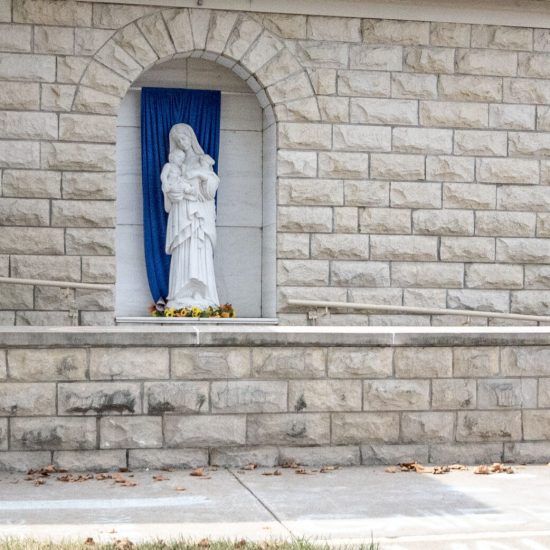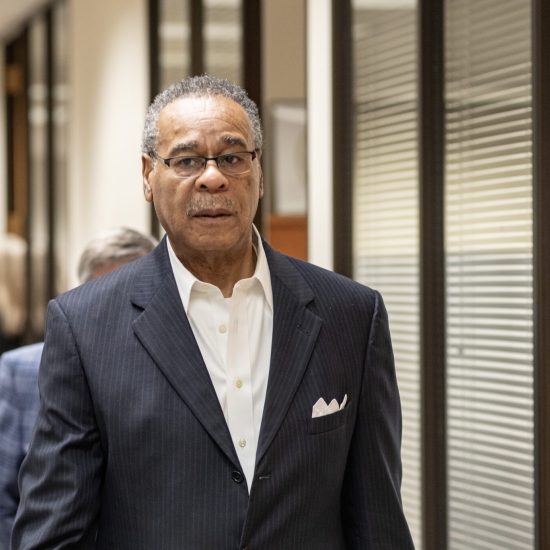COLUMBIA, Mo. — In a whirlwind tour through Missouri April 1-3, the Cooperative Baptist Fellowship executive coordinator shared her vision for the CBF in the years ahead. CBF will focus on identity, mission and ministry to live out God’s call to the church and the individual members of the body.
Suzii Paynter spoke at three primary meetings — in Kansas City, St. Louis and Springfield — and 10 smaller sessions, including one at Little Bonne Femme Baptist Church in Columbia on April 2.

Cooperative Baptist Fellowship Executive Coordinator Suzii Paynter (left) visits with Doris Littrell of Columbia, Mo., about Together for Hope, the Fellowship’s 20-year commitment to the 20 poorest U.S. counties. (Vicki Brown photo)
|
Before she accepted the post as the Fellowship’s leader, Paynter had to determine a personal definition. She thought its identity would be a “byproduct” of the Fellowship’s birth out of conflict between factions in the Southern Baptist Convention more than 20 years ago.
The Fellowship, she determined, is a “denomi-network” that must be based upon relationships between members of local churches and between churches.
Realizing that the Fellowship must determine its identity intentionally, leaders have hired a branding company to get a sense of “how to express who we are,” Paynter said. The firm will talk to CBF members and to some “who don’t like us.”
CBF wants to build its identity on relationships, including among the broader Baptist family. A formal contract has been worked out with the Baptist World Alliance to focus on global aspects, including international religious liberty.
The Fellowship also will focus on missions. A new global missions coordinator will be chosen before the General Assembly in June, Paytner said. CBF will rely on two mission efforts — long-term missionaries and short-term volunteer missions. “This is an investment toward the kingdom…. We are committed to missions,” she said.
Ministry alongside local congregations will be a focus as well. CBF has a relationship with 15 seminaries and divinity schools and innovated Baptist Houses of Study in seminaries affiliated with other denominations. The Fellowship hopes to use the seminary network to help churches and to provide opportunities for students.
In addition, Paynter has set up a sabbatical fund in the Fellowship foundation based on an Australian model. Congregations can contribute over five years as a plan to offer ministers a paid break.
“We want to do this as a way to help the church do what they would like to do for their staff,” she said.
Steven Reeves, CBF associate coordinator of partnerships and advocacy, led a session on advocacy with area pastors and leaders of Missouri Faith Voices, an interdenominational social justice advocacy group.
Reeves’ appointment marks the first time the Fellowship has had a national voice on public policy. But the group does not intend to tell partner churches how to respond to public policy nor to become the “official” voice for the Fellowship.
“A church’s advocacy should grow out of its mission,” he said.
He added that CBF would not decide which issues to address but would wait for churches to tell the national body, and then “kind of feed up.” The Fellowship wants a “solid understanding” of what concerns the congregations, he said.
While advocacy is new for the national body, it is not new for CBF people, Reeves said, pointing out CBF work on limiting payday loans in Missouri.
Advocacy workshops will be included in this year’s annual gathering. Likely, those will include the theology of social justice, predatory lending and immigration.






